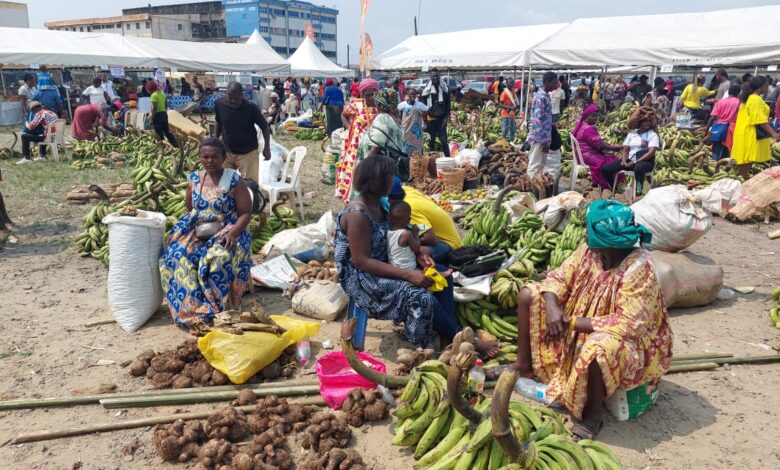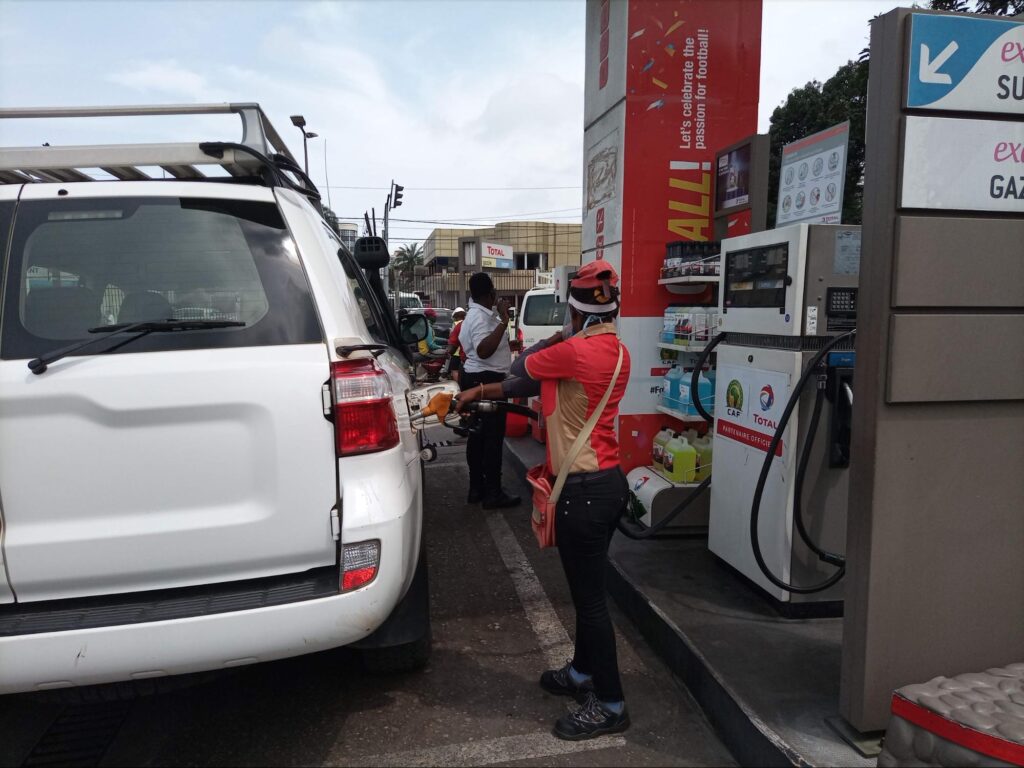Crises In Cameroon: ‘If War Doesn’t Kill You, Price Hike Will’
With a 15 per cent increase in the prices of fuel announced last week, households cry to the government to stop adding salt to their wounds.

Karin Ngwa hosts 19 displaced persons from the crisis-hit northwest region of Cameroon in her home in Bonamoune, Douala. When she learnt about the recent fuel price increase, she was devastated because basic commodities were already expensive.
“Things are hard, things are difficult. This family that I have is just too much,” said Ngwa, who lives with four family members in addition to the IDPs. “When you want to buy oil to cook food for them, the prices are scary. Cassava for 1,000 CFA Francs can’t feed this household again. You take 3,000 CFA Francs to the market and you look stupid.”
She added that the price of soap has risen from 300 to 450 CFA Francs per bar, and her family needs at least three every week.
“Sometimes I feel like going to the village, but I can’t. If war doesn’t kill you in Bamenda, the food price hike will kill you in Douala.”
Prices of basic commodities have been increasing since 2016 in Cameroon. Marie Annette, a resident in the nation’s capital, Yaoundé, lamented the plantains she used to buy comfortably have doubled in price, making it hard for her to conveniently feed her family.
“When you want to complain, the trader tells you fuel is expensive,” she told HumAngle.
Marie said the plantain dealer justified the hike by saying it costs a lot to transport the plantains from farms because of the fuel price increase.
On Feb. 1, the price of petrol and diesel rose by 15 per cent and 25 per cent, respectively. The government reached an agreement with the International Monetary Fund (IMF) for a $74.6 million financing on the condition that they would reduce costly fuel subsidies, which don’t meet up with current international oil price projections. Cameroon’s fuel subsidies were estimated to reach 2.9 percent of GDP in 2022.
Though the Cameroonian government has often denied there’s ongoing inflation, the impact on the street tells a different story. Economist Nsaikila Melaine linked the price hikes to the advent of the Anglophone crisis, a socio-political conflict affecting the two English-speaking regions of Cameroon, in late 2016.
“It is worth noting that Northwest and Southwest regions actually produce a huge chunk of food that serves the country,” he explained.
“As a result of the crisis in those regions, agricultural productivity was drastically reduced as many people had to leave their farms and migrate into neighbouring Nigeria and other regions of the country.”
According to Melaine, supply drastically dropped with rising demand; hence the market had to readjust to reflect this shortfall in supply with rising prices. The situation worsened due to the COVID-19 pandemic and the Russia-Ukraine war.
“Yes, the government could be adding salt to wounds. If they make better reforms, Cameroon may find itself in a better situation. I, however, doubt this is likely to be achieved with the prevailing trend,” he noted.

Cab drivers and motorcyclists believe the weight of the fuel hike falls more on them than their customers.
“What pains me is the fact that my customers do not agree to pay the amount I ask because they don’t care about this increase. All this weighs on me,” said commercial bike rider Netchue Landry.
Executive President of the National Network of Cameroon Consumers, Francis Hervé Eyalla Saba, admits this adds to difficulties already faced by consumers in Cameroon as the cost of living has increased.
“We were consulted by the government on the rise in fuel prices and we succeeded in preventing another increase in domestic gas and oil. The government promised to drop these prices once we start refining our own crude oil,” he said.
He believes this is a sacrifice consumers should make and urged Cameroonians not to protest. A protest on fuel price hike in 2008, led by transporters, had led to the death of at least seven civilians.
Meanwhile, transporter syndicates have written to Prime Minister Joseph Dion Ngute, announcing an imminent increase in fares proportional to the fuel price hike.
Nsaikila Melaine believes there is hope for the country in the next five years if the government properly manages funds that accrue from the cost-saving measures suggested by the IMF. He also urged the authorities to remove ghost workers from its wage bill, construct roads linking farms with markets, reinstate peace in the two English-speaking regions, and make administrative reforms.
Support Our Journalism
There are millions of ordinary people affected by conflict in Africa whose stories are missing in the mainstream media. HumAngle is determined to tell those challenging and under-reported stories, hoping that the people impacted by these conflicts will find the safety and security they deserve.
To ensure that we continue to provide public service coverage, we have a small favour to ask you. We want you to be part of our journalistic endeavour by contributing a token to us.
Your donation will further promote a robust, free, and independent media.
Donate HereStay Closer To The Stories That Matter




